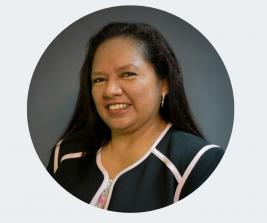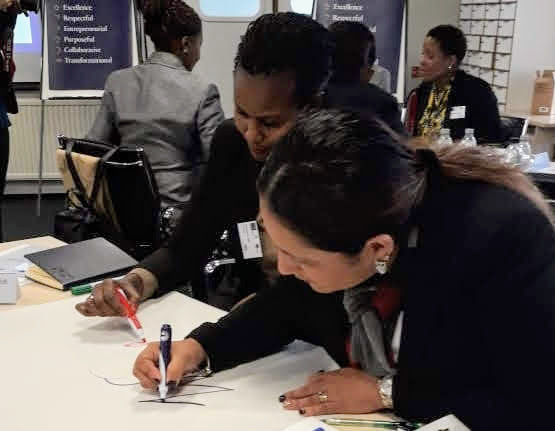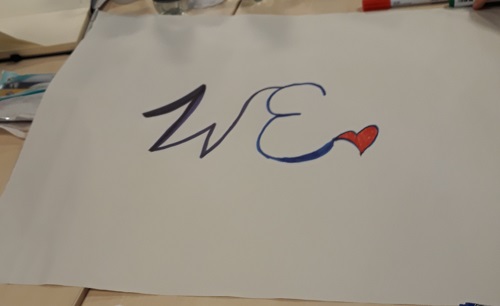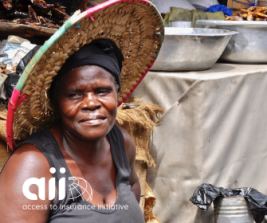Perspectives on financial inclusion from Belize: An Interview with Alma D. Gomez, Supervisor of Insurance and Pensions at the OSIPP
Perspectives on financial inclusion from Belize: An Interview with Alma D. Gomez, Supervisor of Insurance and Pensions at the OSIPP

|
|
The Women’s World Banking Leadership and Diversity Program for Regulators brings together senior officials from central banks and other regulatory agencies from developing economies and high-potential women from their respective institutions in a 9-month leadership program. Each senior official identifies a policy initiative to sponsor at their institution related to serving the women’s market and works with their high-potential woman leader to implement it, while simultaneously supporting her professional development during and after the program.
In 2019, two supervisors from Belize were among those chosen by the A2ii to receive a scholarship to attend the program: Alma D. Gomez (senior official) and Alicia Leslie (a high-potential woman leader). The following is an interview with Ms Gomez, who is the Supervisor of Insurance and Pensions at the Office of the Supervisor of Insurance & Private Pensions (OSIPP) of Belize. She has been working in insurance supervision for 26 years, in pension supervision for three years, and is a founding member of the Insurance Association of Insurance Supervisors (IAIS) and the Caribbean Association of Insurance Regulators (CAIR).
A2ii: Can you give us some background on the inclusive insurance landscape of Belize and the role of the Supervisor?
A.D.G.: The principal role of the Office of the Supervisor of Insurance & Private Pensions (OSIPP) of Belize is to protect the interests of the public by supervising the insurance and pensions sectors, not only in their conduct of business but also in the promotion of the financial stability of Belize. While difficult, the Supervisor must balance supervision with the promotion of insurance.
We ensure that the products provided by the insurance companies provide a service and benefit to the policyholders. At the same time, the public and the insurers must understand that there are rules to follow to ensure that the policy operates as intended with both policyholder and insurer benefitting. Developing trust in the insurance sector and the Supervisor is the only way in which the general public will feel comfortable buying insurance products and insurance companies offering appropriate and needed insurance coverage.
We are currently engaged in the implementation of a National Financial Inclusion Strategy (NFIS) where three officers of OSIPP are participating. The strategy includes an educational component (financial literacy), development of products (specific to agriculture insurance) and infrastructure (for distribution and accessibility), consumer protection, and supervision.
Financial inclusion is, in many cases, beyond the current legislation. Regulators must implement legislation but are also in a unique position where they can influence development by legislation. Participating in this program allowed for an understanding of ways in which financial inclusion is possible with:
- Measures of protection for the consumer and the financial entity;
- The prevention of money laundering/terrorist financing; and most importantly
- The development of the people in the community.
A2ii: As part of the program you were also tasked to identify a policy initiative to pursue further as a project back home. Tell us more about your initiative.
A.D.G.: Our project is entitled “Developing Financial Independence”. The project entails the facilitation of access to insurance by the “uninsurable” to foster financial independence and climate adaptation. The objective is for the commercial insurers to be encouraged to provide insurance coverage to persons in the low-income bracket who would not normally have access to insurance (by availability or affordability) where the insurance product is accessible and affordable yet not placing a financial strain on the insurer. A balance is required to prevent subsidies and financial instability.
Particularly, the Ministry of Agriculture has been lobbying for insurance for the farmers. Disaster assessment reports show that many of the farmers affected by natural disasters are low-income farmers who would normally not have access to insurance for their houses, much less their crops or tools. Similarly, the Fisheries Department has also been lobbying for insurance for the fishers (79 of the 2,025 registered fishers are women).
A2ii: Have there been any new microinsurance products in the pipeline since then that would cater to the farmers and the fishers in Belize, particularly considering the new circumstances of the Covid-19 pandemic?
A.D.G.: In 2019 the Climate Risk Adaptation and Insurance in the Caribbean Project (“CRAIC“) made a presentation to the local insurance industry to assist them in developing a parametric insurance product called “Livelihood Protection Policy“. This type of product would provide the desired insurance requested by the farmers and fishers as a micro-insurance policy. Two insurance companies engaged the project and it was expected that a policy would have been developed by April 2020. In late November we were informed that the CRAIC project was going through a transition which resulted in a delay in the start date as the re-engagement is expected to start after June 2020. The current Covid-19 Pandemic may also create a delay.
A2ii: What does this mean for you as the Supervisor and what learnings have you drawn from the new, pandemic-related way of working?
A.D.G.: As the regulator and supervisor of the insurance industry, we ensure that the appropriate legislation is in place to allow the type of insurance product to be marketed within Belize, to promote consumer protection and at the same time maintain the financial stability of the sector. Under the CRAIC project, the insurance product would be parametric-based and not indemnity based. The principles of indemnity differ from that of parametric insurance so new regulations and code of conduct are required.
Due to the pandemic, the commercial insurers have had to “work from home,“ continuing to provide services to their clients remotely. This is of interest since the second micro-insurance product could not be launched due to the “tele-distribution“ it contemplated. Results from the pandemic exercise may actually provide an opportunity to:
- Develop new distribution lines, and
- New products to access those remote areas which could not have been accessed before, which is the area where financial inclusion is much needed.
A2ii: Apart from the academic and applicable knowledge of the Leadership Program, what other takeaways do you consider important for the promotion of inclusive insurance and for your professional development?
A.D.G.: This program provided an avenue for meeting new people and most importantly, the sharing of experiences among the different organisations and cultures. The experiences shared provided insight into how OSIPP could facilitate and promote financial inclusion. We learned about the e-wallet and how it has been successfully used to promote financial inclusion in Africa and Asia; this generated lots of ideas. This was especially helpful as the insurance industry has been trying to sell insurance using telephone companies but have been unsuccessful.

The communication portion of the program provided a new perspective to me and Ms Alicia Leslie [Ms Leslie was the high-potential woman leader chosen for the scholarship alongside Ms Gomez - Ed.] on how to effectively communicate with staff considering emotional intelligence. We shared the communication tools from the program at a staff meeting and encouraged their use, seeing positive results.
We also learned about organisational culture. Understanding organisational culture has been difficult in some cases especially where preferences are more powerful than empathy towards others. “Organisational culture” was quite new to us. It is something that was never contemplated even though many times we would say in Creole “dah so” which means “that is how it is.” Change management and organisational culture proved useful when shared with staff, opening discussions among staff which would not have normally taken place. When new ideas are tested and positive results are obtained, staff members are motivated to continue improving.
A2ii: Going forward, what do you consider essential in promoting women’s financial inclusion?
A.D.G.: Financial education is most essential to promote women’s financial inclusion. By increasing awareness on what insurance is and how it can assist in financial stability, especially after a catastrophic event, women would be more inclined to try out the product. Through the rural finance project, many women in Belize have been able to access finance and, in most cases have started their own businesses through women's groups. Support for their efforts, purchasing their products by the local markets can help them to develop their own financial stability. Protecting their assets, through insurance, would also help them maintain financial stability should a catastrophic event occur. In general, women’s development lies with the support that the community gives them. “Buy local, support your local women’s group/women entrepreneurs” should be the poster board to promote women’s financial inclusion.

A2ii: How would you summarise your experience at the WWB Leadership and Diversity Program?
A.D.G.: With this program, regulators have a chance of becoming “enablers” of development. Thinking “outside the box” and embracing change while maintaining the principles of prudential supervision and considering the level of risk provides for a more well-rounded view to life. The regulatory and supervisory standards can still be implemented but with care to foster development for financial inclusion and protection of the vulnerable. This is one program that I will endorse and highly recommend to regulators.
Share this article
Also in Blog

Authors
Posts by Author
Topics Cloud
Subscribe to our list
Receive notifications when we publish new blog entries
Subscribe here


